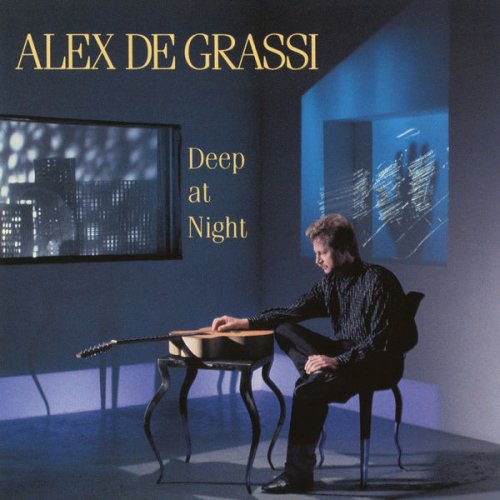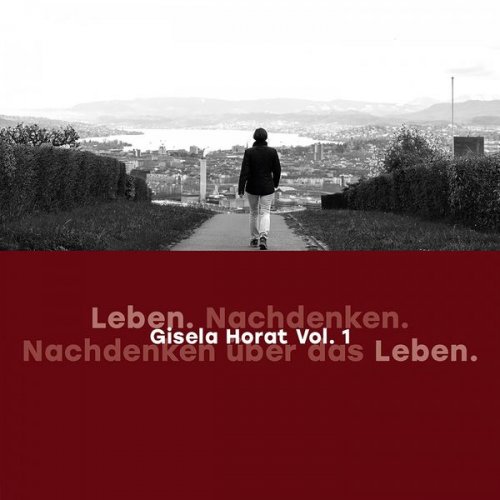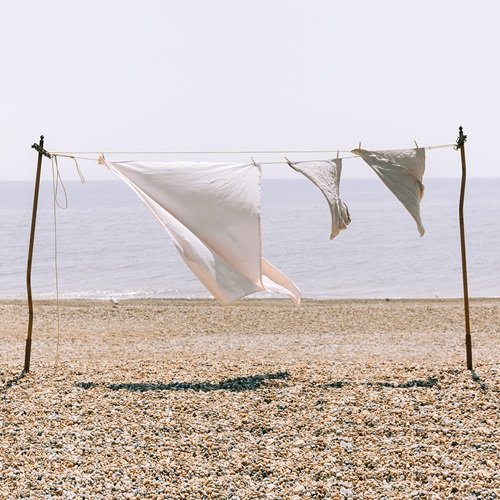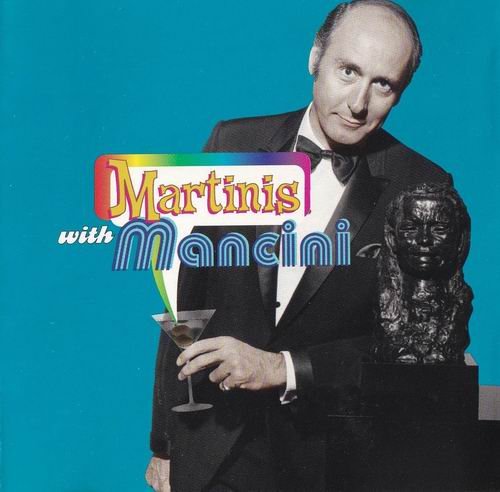Irmgard Seefried, Erik Werba - Lieder (1992) CD-Rip
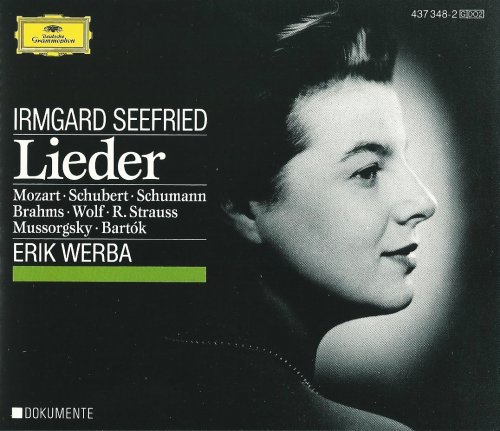
Artist: Irmgard Seefried, Erik Werba
Title: Lieder
Year Of Release: 1992
Label: Deutsche Grammophon
Genre: Classical, Vocal
Quality: FLAC (image+.cue,log,scans)
Total Time: 02:14:37
Total Size: 381 Mb
WebSite: Album Preview
Tracklist: Title: Lieder
Year Of Release: 1992
Label: Deutsche Grammophon
Genre: Classical, Vocal
Quality: FLAC (image+.cue,log,scans)
Total Time: 02:14:37
Total Size: 381 Mb
WebSite: Album Preview
CD 1:
01. Das Veilchen, song for voice & piano, K. 476 [0:02:17.00]
02. Die Verschweigung (-Sobald Damötas Chloen sieht-), song for voice & piano, K. 518 [0:02:34.00]
03. Das Lied der Trennung (-Die Engel Gottes weinen-), song for voice & piano, K. 519 [0:05:08.00]
04. Das Kinderspiel (-Wir Kinder, wir schmecken-), song for voice & piano, K. 598 [0:01:22.00]
05. Die kleine Spinnerin (-Was spinnst du--), song for voice & piano, K. 531 [0:02:00.00]
06. Als Luise die Briefe (-Erzeugt von heisser Phantasie-), song for voice & piano, K. 520 [0:01:54.00]
07. Dans un bois solitaire, song for voice & piano, K. 308 (K. 295b) [0:02:28.00]
08. An Chloe (-Wenn die Lieb'-), song for voice & piano, K. 524 [0:02:24.00]
09. Abendempfindung an Laura (-Abend ist's-), song for voice & piano, K. 523 [0:04:22.00]
10. Sehnsucht nach dem Frühling (-Komm, lieber Mai-), song for voice & piano, K. 596 [0:01:59.00]
11. Auf dem Wasser zu singen (-Mitten im Schimmer der spiegelnden Wellen-), song for voice & piano, D. 774 (Op. 72) [0:03:20.00]
12. Lachen und Weinen, song for voice & piano, D. 777 (Op. 59-4) [0:01:42.00]
13. Dein blaues Auge hält so still, song for voice & piano, Op. 59-8 [0:02:08.00]
14. Ständchen (-Der Mond steht über dem Berge-), song for voice & piano, Op. 106-1 [0:01:35.00]
15. The Nursery (Detskaya; 7), song cycle for voice & piano, edited by Rimsky-Korsakov- 1. Mit der Njanja [0:01:58.00]
16. The Nursery (Detskaya; 7), song cycle for voice & piano, edited by Rimsky-Korsakov- 2. Im Winkel [0:01:40.00]
17. The Nursery (Detskaya; 7), song cycle for voice & piano, edited by Rimsky-Korsakov- 3. Der Käfer [0:02:45.00]
18. The Nursery (Detskaya; 7), song cycle for voice & piano, edited by Rimsky-Korsakov- 4. Mit der Puppe [0:02:28.00]
19. The Nursery (Detskaya; 7), song cycle for voice & piano, edited by Rimsky-Korsakov- 5. Abendgebet [0:02:22.00]
20. The Nursery (Detskaya; 7), song cycle for voice & piano, edited by Rimsky-Korsakov- 6. Steckenpferdreiter [0:03:27.00]
21. Falun, Village Scenes (5), for female voice & piano, Sz. 78, BB 87a- 1. Heuernte [0:01:12.00]
22. Falun, Village Scenes (5), for female voice & piano, Sz. 78, BB 87a- 2. Bei der Braut [0:01:38.00]
23. Falun, Village Scenes (5), for female voice & piano, Sz. 78, BB 87a- 3. Hochzeit [0:02:55.00]
24. Falun, Village Scenes (5), for female voice & piano, Sz. 78, BB 87a- 4. Wiegenlied [0:04:33.00]
25. Falun, Village Scenes (5), for female voice & piano, Sz. 78, BB 87a- 5. Burschentanz [0:02:15.00]
26. An eine Äolsharfe (-Angelehnt an die Efeuwand-), song for voice & piano (Mörike Lieder) [0:05:42.00]
27. Das verlassene Mägdlein (-Früh, wann die Hähne krähn-), song for voice & piano (Mörike Lieder) [0:03:22.00]
28. Begegnung (-Was doch heut Nacht ein Sturm-), song for voice & piano (Mörike Lieder) [0:01:28.00]
29. Ständchen (-Mach' auf, mach' auf, doch leise, mein Kind-), song for voice & piano, Op. 17-2 (TrV 149-2) [0:02:38.17]
CD 2:
01. EDie Lotosblume ("Die Lotosblume ängstigt sich..."), song for voice & piano (Myrthen), Op. 25/7 [0:01:43.00]
02. EMit Myrthen und Rosen, lieblich und hold, song for voice & piano (Liederkries), Op. 24/9 [0:03:44.00]
03. EDu bist wie eine Blume, song for voice & piano (Myrthen), Op. 25/24 [0:01:45.00]
04. EFrauenliebe und -leben, song cycle for voice & piano, Op. 42: 1. Seit ich ihn gesehen [0:02:28.00]
05. EFrauenliebe und -leben, song cycle for voice & piano, Op. 42: 2. Er, der Herrlichste von allen [0:03:04.00]
06. EFrauenliebe und -leben, song cycle for voice & piano, Op. 42: 3. Ich kann's nicht fassen, nicht glauben [0:01:39.00]
07. EFrauenliebe und -leben, song cycle for voice & piano, Op. 42: 4. Du Ring an meinem Finger [0:02:50.00]
08. EFrauenliebe und -leben, song cycle for voice & piano, Op. 42: 5. Helft mir, ihr Schwestern [0:01:48.00]
09. EFrauenliebe und -leben, song cycle for voice & piano, Op. 42: 6. Süßer Freund, do blickest [0:04:19.00]
10. EFrauenliebe und -leben, song cycle for voice & piano, Op. 42: 7. An meinem Herzen, an meiner Brust [0:01:09.00]
11. EFrauenliebe und -leben, song cycle for voice & piano, Op. 42: 8. Nun hast du mir den ersten Schmerz getan [0:04:05.00]
12. EDer König in Thule ("Es war ein König in Thule"), song for voice & piano, D. 367 (Op. 5/5) [0:02:54.00]
13. EDas Lied im Grünen ("Ins Grüne..."), song for voice & piano, D. 917 (Op. posth. 115/1) [0:02:37.00]
14. EDie junge Nonne ("Wie braust durch die Wipfel"), song for voice & piano, D. 828 (Op. 43/1) [0:04:20.00]
15. EFischerweise ("Den Fischer fechten Sorgen"), song for voice & piano, D. 881 (Op. 96/4) [0:03:26.00]
16. ESeligkeit ("Freuden sonder Zahl"), song for voice & piano ("Minnelied"), D. 433 [0:02:13.00]
17. EDie Forelle ("In einem Bächlein helle"), song for voice & piano, D. 550 (Op. 32) [0:01:58.00]
18. EAn die Musik ("Du holde Kunst..."), song for voice & piano, D. 547 (Op. 88/4) [0:02:40.00]
19. ETraum durch die Dämmerung ("Weite Wiesen im Dämmergrau"), song for voice & piano (or orchestra), Op. 29/1 (TrV 172/1) [0:02:26.00]
20. EMeinem Kinde ("Du schläfst und sachte neig' ich mich"), song for voice & piano (or orchestra), Op. 37/3 (TrV 187/3) [0:02:09.00]
21. EAllerseelen ("Stell' auf den Tisch die duftenden Reseden"), song for voice & piano, Op. 10/8 (TrV 141/8) [0:02:28.00]
22. EMorgen ("Und morgen wird die Sonne wieder scheinen"), song for voice & piano (or orchestra), Op. 27/4 (TrV 170/4) [0:03:16.00]
Performers:
Irmgard Seefried - soprano
Erik Werba - piano
In the 1940s and early 1950s, Irmgard Seefried was a paragon among German lyric sopranos, her voice fresh and crystalline, her stage presence vital and attractive. Although she was an intelligent and well-prepared artist, the impression she made was one of considerable spontaneity. Her Susanna in Le nozze di Figaro and Pamina in Die Zauberflöte were very different creations, the first piquant and cunning, the latter direct and innocent, though never the pallid personality others have imposed upon her. Her Composer in Strauss' Ariadne auf Naxos was a defining interpretation, ardently sung and passionately acted. It was captured in live performance in 1944 and, again, in the studio a decade later when her voice was at its zenith. By the late 1950s, an early decline, which some have attributed to singing too late into pregnancy and returning to the stage too soon after childbirth, stole a good measure of freedom from her singing although she remained a strong artist dramatically.
Seefried began her training with her father who had urged a degree in music in the event she had to make her own living. She studied at Augsburg University, first with Albert Meyer and, later, with Paola Novikova (with whom she continued to work long after her career was established). Her stage debut took place at Aachen in 1940 when she sang the Priestess in a production of Aida. After Nuri in d'Albert's Tiefland, she was shocked to find that the theater's music director, Herbert von Karajan, had scheduled her for Donna Anna in Don Giovanni. As she acknowledged later, she "got away" with the role due to the theater's small size and a very lyric approach to the highly dramatic role.
After three years in Aachen, Seefried moved to Vienna where she joined that theater's ensemble of extraordinary Mozart singers. Her wartime performances were accomplished under circumstances of utter privation: little heat, little food, repeated trips to shelters during both rehearsals and performances. Seefried's Eva under Karl Böhm established her as an artist with an unlimited future and she quickly became a favorite with the Vienna public. She was honored by being chosen to appear as the Composer in Ariadne to celebrate Richard Strauss' 80th birthday and in 1946 made her first appearance at Salzburg where her Pamina became legendary. London heard her in 1947 when she performed Susanna and Fiordiligi with the visiting Vienna Opera. Susanna served for her debut role at La Scala in 1949.
Although her Susanna was well-received at the Metropolitan Opera in November 1953, Seefried did not return to that theater, but did make memorable appearances with Chicago's Lyric Opera beginning in 1961. Chicago heard her Zerlina and Marzelline in her debut year and her still-wonderful Composer in 1964.
In addition to opera, Seefried was a first-rank interpreter of Lieder and a concert singer much in demand. In her prime years, her singing of the soprano solo portions of Bach's St. Matthew Passion, Beethoven's Ninth Symphony, and, above all, Haydn's Creation was unsurpassed. She performed all three of these works with Wilhelm Furtwängler, an influential guide and mentor. Seefried's recitals at Salzburg and elsewhere came to be treasured events. Many of her earlier Lieder recordings support the reputation she enjoyed among connoisseurs of beautiful and communicative singing.
Seefried began her training with her father who had urged a degree in music in the event she had to make her own living. She studied at Augsburg University, first with Albert Meyer and, later, with Paola Novikova (with whom she continued to work long after her career was established). Her stage debut took place at Aachen in 1940 when she sang the Priestess in a production of Aida. After Nuri in d'Albert's Tiefland, she was shocked to find that the theater's music director, Herbert von Karajan, had scheduled her for Donna Anna in Don Giovanni. As she acknowledged later, she "got away" with the role due to the theater's small size and a very lyric approach to the highly dramatic role.
After three years in Aachen, Seefried moved to Vienna where she joined that theater's ensemble of extraordinary Mozart singers. Her wartime performances were accomplished under circumstances of utter privation: little heat, little food, repeated trips to shelters during both rehearsals and performances. Seefried's Eva under Karl Böhm established her as an artist with an unlimited future and she quickly became a favorite with the Vienna public. She was honored by being chosen to appear as the Composer in Ariadne to celebrate Richard Strauss' 80th birthday and in 1946 made her first appearance at Salzburg where her Pamina became legendary. London heard her in 1947 when she performed Susanna and Fiordiligi with the visiting Vienna Opera. Susanna served for her debut role at La Scala in 1949.
Although her Susanna was well-received at the Metropolitan Opera in November 1953, Seefried did not return to that theater, but did make memorable appearances with Chicago's Lyric Opera beginning in 1961. Chicago heard her Zerlina and Marzelline in her debut year and her still-wonderful Composer in 1964.
In addition to opera, Seefried was a first-rank interpreter of Lieder and a concert singer much in demand. In her prime years, her singing of the soprano solo portions of Bach's St. Matthew Passion, Beethoven's Ninth Symphony, and, above all, Haydn's Creation was unsurpassed. She performed all three of these works with Wilhelm Furtwängler, an influential guide and mentor. Seefried's recitals at Salzburg and elsewhere came to be treasured events. Many of her earlier Lieder recordings support the reputation she enjoyed among connoisseurs of beautiful and communicative singing.
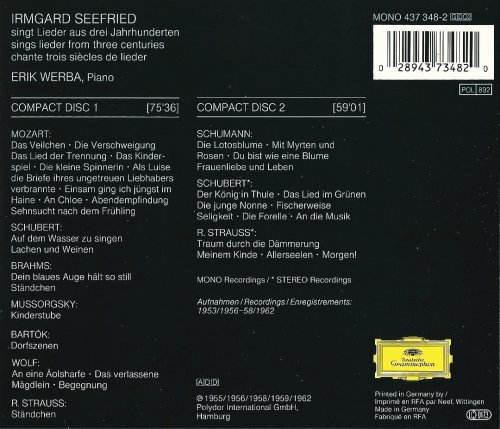

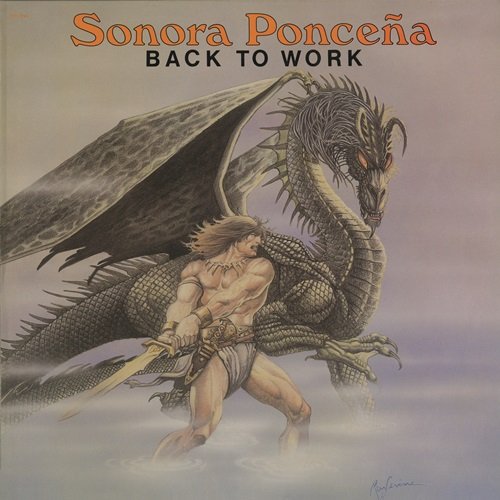

![Victoria Port - Barefoot In The Garden (2025) [Hi-Res] Victoria Port - Barefoot In The Garden (2025) [Hi-Res]](https://img.israbox.com/img/2025-12/29/ewzd0szcsnv1f02bzk1gno02h.jpg)
